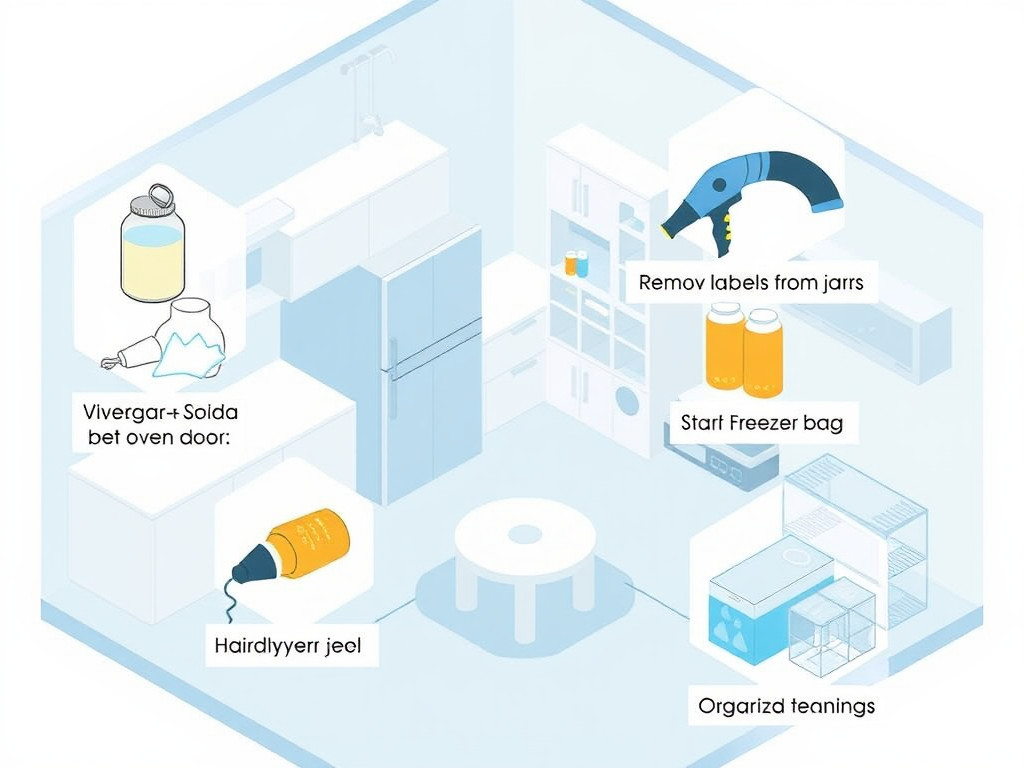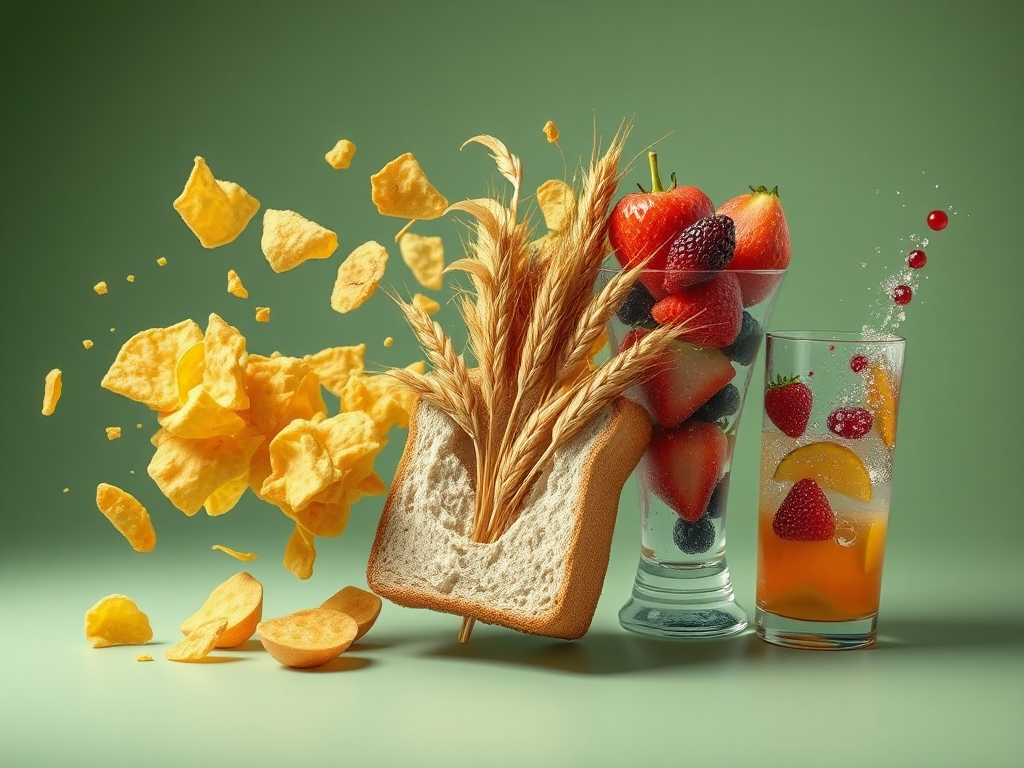
Introduction
Do you often forget to drink water? You know drinking more water is good for your health, but you just can't remember to hydrate regularly. Or maybe you find plain water too bland to drink. In this fast-paced life, many people overlook the simple act of drinking water. Some can go an entire day without a single sip when busy, only to find their throat parched by evening. Others carry water bottles but never feel motivated to drink. Today, I'll share how to make drinking water more enjoyable and help you easily develop healthy hydration habits.
Why Drink Water
Let's first dive into why we must drink enough water. The human body is 60-70% water, and water is as vital to us as oil is to a car. According to the World Health Organization, adults should drink at least 1.5-2 liters of water daily. However, studies show that over 80% of Chinese people experience varying degrees of dehydration.
Every organ in our body needs adequate water to function properly. The brain is 73% water - insufficient hydration can affect brain function, leading to poor concentration and memory. Skin contains about 64% water - dehydration causes dry skin, loss of elasticity, and accelerated aging. Kidneys need enough water to filter blood waste - chronic dehydration may increase the risk of kidney stones.
Water also plays a crucial role in temperature regulation. When we exercise or are in hot environments, our bodies cool down through sweating. Without timely water replenishment, we may experience dizziness and fatigue. Research shows that even mild dehydration (2% body weight loss in water) can significantly impact physical and cognitive performance.
Additionally, adequate water intake is crucial for the digestive system. Water helps digest and absorb nutrients, promotes intestinal movement, and prevents constipation. Many don't realize that chronic constipation often results from insufficient water intake. Proper hydration can also help control appetite - studies show drinking water before meals can reduce caloric intake by about 13%.
Eight Tips
Timed Reminders
I recently discovered a particularly effective method - setting water reminders at fixed times each day. For example, after waking up, before lunch, during afternoon tea, and after dinner. This helps establish a routine and gradually build habits. Did you know? Research shows it takes an average of 66 days to form a new habit, so you might need deliberate reminders at first.
Modern technology offers various reminder methods. You can set multiple alarms on your phone or use dedicated hydration reminder apps. These apps not only remind you to drink water but also automatically adjust recommended water intake based on your weight, activity level, and local weather. Some apps even use cute emoticons or motivational messages to remind you, making hydration more fun.
Besides electronic reminders, you can link water drinking to daily activities. For example, drink water before answering phone calls, after watching an episode of TV, or after using the bathroom. This way, drinking water becomes a conditioned reflex without conscious effort.
Many professionals find combining water intake with work rhythms particularly effective. You can follow a "25 minutes work + 5 minutes break" schedule, drinking a small glass of water during each break. This ensures regular hydration while giving your brain appropriate rest, improving work efficiency.
Water Flavoring
Plain water can be monotonous, but we can make it more interesting. Try adding lemon slices, mint leaves, cucumber slices, or a few blueberries. This not only adds flavor but also supplements vitamins and minerals. My personal favorite combination is lemon with mint - it's especially refreshing.
Fruit-infused water isn't just delicious; it brings additional health benefits. Lemon water is rich in vitamin C and boosts immunity; mint water helps refresh the mind and improve breath; cucumber water has cooling properties; blueberry water is rich in antioxidants. You can choose different combinations based on seasons and personal preferences.
Consider several tips when preparing flavored water. First, choose fresh fruits rather than pre-cut supermarket options to preserve nutrients. Second, wash fruits thoroughly, preferably using organic produce to reduce pesticide residue. Third, different fruits have different soaking times - lemons can soak longer, while softer fruits like strawberries should be added just before drinking.
Besides fruits, you can try healthy herbal teas. Chamomile tea helps relaxation, rose tea benefits beauty and skin health, and chrysanthemum tea helps clear heat and improve vision. However, herbal teas are best consumed before 3 PM to avoid affecting sleep quality.
Choosing the Right Water Bottle
Selecting an appropriate water bottle is important. Consider bottles with 500ml-1000ml capacity - drinking four bottles meets the daily recommended intake. Many bottles now feature measurement scales to help track water consumption.
Material choice matters too. Glass bottles offer transparency to view water levels and avoid odd tastes but require careful handling. Stainless steel thermal bottles maintain temperature well and are durable, perfect for office use. For plastic bottles, choose food-grade materials and avoid long-term use of products that might release BPA.
Bottle design details affect user experience. The mouth should be wide enough for easy cleaning and adding ice or fruit; handles should be comfortable; caps preferably push-button or straw-type for convenient drinking. Some newer bottles include strainers for tea leaves or fruit pulp.
Some high-tech bottles now monitor water temperature, remind you to hydrate, and even sync with phones to track daily water intake. While these features sound cool, the most important factor is choosing a bottle that feels comfortable for you.
Timing of Water Intake
Many people don't know when to drink water. Actually, the best times are after waking up, before and after exercise, and around meals. Especially important is drinking warm water immediately after waking up to quickly replenish water lost during sleep.
The first morning drink should be warm water, between 25-35 degrees Celsius. This temperature, close to body temperature, is more easily absorbed. Water too cold or hot can irritate the stomach. Morning drinking on an empty stomach also promotes intestinal movement and helps with bowel movements.
Hydration around exercise is crucial. Drink 200-300ml water 30 minutes before exercise to prevent dehydration. During exercise, take small sips every 15-20 minutes. After exercise, replenish lost fluids based on sweat amount, generally aiming to restore lost water within two hours post-exercise.
Drinking water around meals requires attention. A glass of water 30 minutes before meals increases satiety and helps control appetite. Drink minimally during meals to avoid diluting stomach acid and affecting digestion. Wait an hour after meals to drink water, which then aids digestion and absorption.
Evening hydration needs careful timing. Reduce water intake 1-2 hours before bed to avoid affecting sleep quality. If thirsty at night, take small sips rather than large amounts.
Smart Tracking
Many smart water bottles and phone apps now help track daily water intake. Data shows people using these tools drink 300-500ml more water daily than those who don't. I started using a smart water bottle last year and noticed my water intake indeed increased significantly.
Smart water bottles typically offer multiple functions. Some monitor water temperature in real-time and remind you to drink when it's optimal; others record each drink and automatically sync with phone apps; some even adjust recommended intake based on environmental temperature and your activity level.
Phone apps provide richer data analysis. They not only record daily water intake but generate trend charts to help identify hydration habit issues. Some apps include social features for checking in with friends and mutual encouragement.
These smart tools provide personalized recommendations based on individual circumstances. They calculate optimal water intake based on weight, age, and activity level; adjust reminder frequency for different weather conditions; and even schedule optimal drinking times based on your routine.
However, remember that technology tools are just aids - developing conscious hydration awareness is most important. Use these tools to help establish habits; once formed, you'll naturally remember to drink water even without reminders.
Creating Ritual
Make drinking water enjoyable. Try buying a beautiful glass or preparing different fruit tea bags to vary flavors daily. This makes hydration more interesting and increases motivation to maintain the habit.
Create your own hydration corner. Prepare an elegant tray with water cups, tea sets, various fruits and herbal tea bags. Make each water break feel like afternoon tea, turning hydration into a daily pleasure.
Using different bottles for different occasions adds variety. Use motivational quote mugs at the office, portable sports bottles while exercising, and elegant glass cups at home. Each bottle has its story and context.
Try turning hydration into a ritual. Perhaps prepare lemon water each morning with a book or soft music, making it a cozy process. Or prepare special fruit-infused water weekly, carefully selecting combinations like mixing cocktails.
Dietary Pairing
Consider water intake during meals. Many don't realize 20% of our water intake comes from food. Eating fruits and vegetables not only provides vitamins but helps with hydration. Watermelon, cucumber, and tomatoes all contain over 90% water.
Eat more water-rich fruits in summer. Watermelon is ideal for summer hydration with 92% water content; honeydew contains about 90% water and is rich in vitamin C; grapes contain about 81% water and provide quick energy.
Vegetables' water content shouldn't be overlooked. Lettuce contains 96% water, perfect for salads; cucumbers are 95% water, good raw or cooked; tomatoes are 94% water, suitable for eating directly or in soups. These vegetables provide both hydration and rich dietary fiber and vitamins.
Consider more soup dishes when cooking. Clear broths are easily digested and provide hydration. Note that thick soups, being higher in salt, aren't as hydrating as clear soups. Control salt when making soup and consider adding medicinal food ingredients like yams and red dates.
Avoiding Misconceptions
Remember that coffee, tea, and carbonated drinks, though liquid, can't completely replace water. These beverages often contain caffeine, which can actually increase dehydration. Keep these drinks to within 20% of daily fluid intake.
Caffeine has diuretic effects - for each caffeinated drink, you need to supplement with 1.5 times the water. Strong tea also contains caffeine, especially black and green teas - best consumed moderately after meals. Carbonated drinks are high in sugar and their bubbles burden the stomach.
Many like sports drinks for hydration, but these are mainly for replacing electrolytes lost during exercise - regular consumption means excess sugar intake. If exercising less than an hour, water is sufficient.
Another common misconception is thinking more water is better. Excessive water intake can dilute blood electrolytes and potentially cause water intoxication. The right approach is determining intake based on individual circumstances and activity level, maintaining steady hydration rather than drinking large amounts at once.
Precautions
While drinking water is important, moderation is key. Drinking too much at once can strain the kidneys. Experts recommend 200-300ml per drink - steady sipping is healthier than gulping large amounts.
Drinking posture matters. Best to sit and drink slowly, not while standing or walking. Take small sips to allow better absorption. Even when thirsty, avoid drinking too much at once - better to spread it out over several times.
Choose water temperature based on season and individual constitution. Generally, room temperature or slightly warmer water is better absorbed. In summer, slightly cool water is fine, but avoid ice water to prevent stomach irritation. In winter, warm water is best for both hydration and stomach comfort.
Special populations need extra attention. Pregnant women should increase intake appropriately but avoid large amounts at once; elderly should drink regularly rather than waiting for thirst; those with cardiovascular conditions should control intake and follow medical advice.
Final Thoughts
Using these methods, I've maintained proper hydration for almost a year. Gradually, my skin improved and concentration increased. Have you noticed that many seemingly simple healthy habits become easy to maintain with the right approach?
Reflecting on this year's hydration journey, the biggest realization is the power of habits. Initially requiring conscious reminders and feeling troublesome, but after persistence, drinking water becomes natural. Now drinking water first thing in the morning and taking sips while working have become essential parts of life.
Through regular hydration, I've noticed clear physical changes. Not just better skin, but rarely feeling fatigue. Previous issues like headaches and constipation have gradually improved. Most importantly, adequate hydration keeps the mind clear, significantly improving work efficiency.
Developing healthy lifestyle habits isn't difficult - the key is finding suitable methods. Like drinking water, when you turn it into enjoyment rather than burden, persistence becomes easier. I hope sharing these experiences helps more people find their suitable hydration methods, making healthy drinking a lifestyle highlight.
So, how do you remind yourself to drink water regularly? Share your unique tips in the comments. Let's check in for healthy hydration together and build good habits. Through exchanging experiences, we can discover more interesting and practical hydration methods, making healthy drinking a lifestyle attitude.
Next
Is Drinking More Water Also a Skill? 8 Practical Tips to Make Drinking Water Super Easy
A comprehensive guide covering healthy lifestyle management and practical life tips, including balanced diet principles, nutritional supplements, weight management, exercise plans, kitchen skills and home organization methods
10 Super Practical Home Organization Tips to Keep Your Home in Perfect Order
Discover practical life hacks covering home organization, daily productivity enhancement, and electronic device usage tips to create a more efficient and comfortable lifestyle
A Surprising Truth About Nutrition: Is Healthy Eating Really That Hard?
Discover essential nutrition and diet tips, including balanced eating habits, nutritional supplements, weight management, and hydration, along with practical kitchen and household cleaning techniques
Next

Is Drinking More Water Also a Skill? 8 Practical Tips to Make Drinking Water Super Easy
A comprehensive guide covering healthy lifestyle management and practical life tips, including balanced diet principles, nutritional supplements, weight management, exercise plans, kitchen skills and home organization methods

10 Super Practical Home Organization Tips to Keep Your Home in Perfect Order
Discover practical life hacks covering home organization, daily productivity enhancement, and electronic device usage tips to create a more efficient and comfortable lifestyle

A Surprising Truth About Nutrition: Is Healthy Eating Really That Hard?
Discover essential nutrition and diet tips, including balanced eating habits, nutritional supplements, weight management, and hydration, along with practical kitchen and household cleaning techniques


